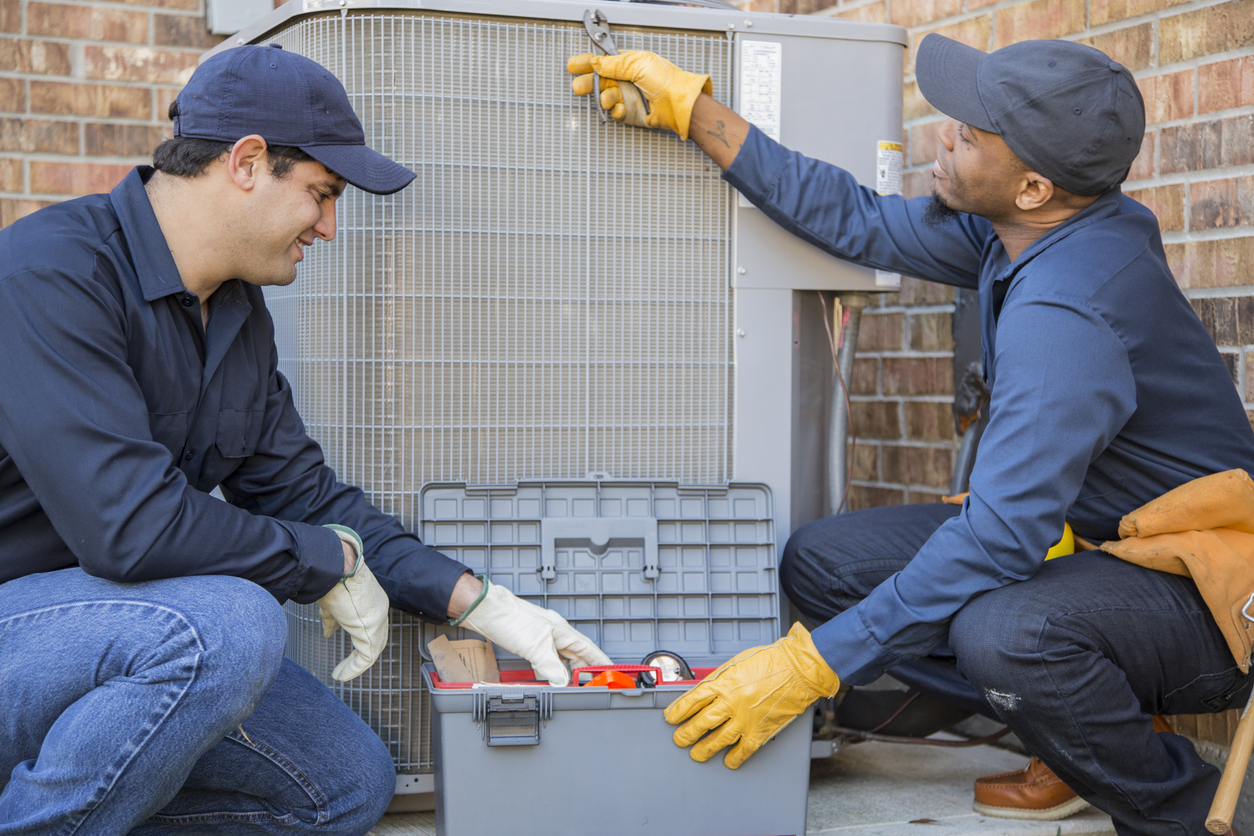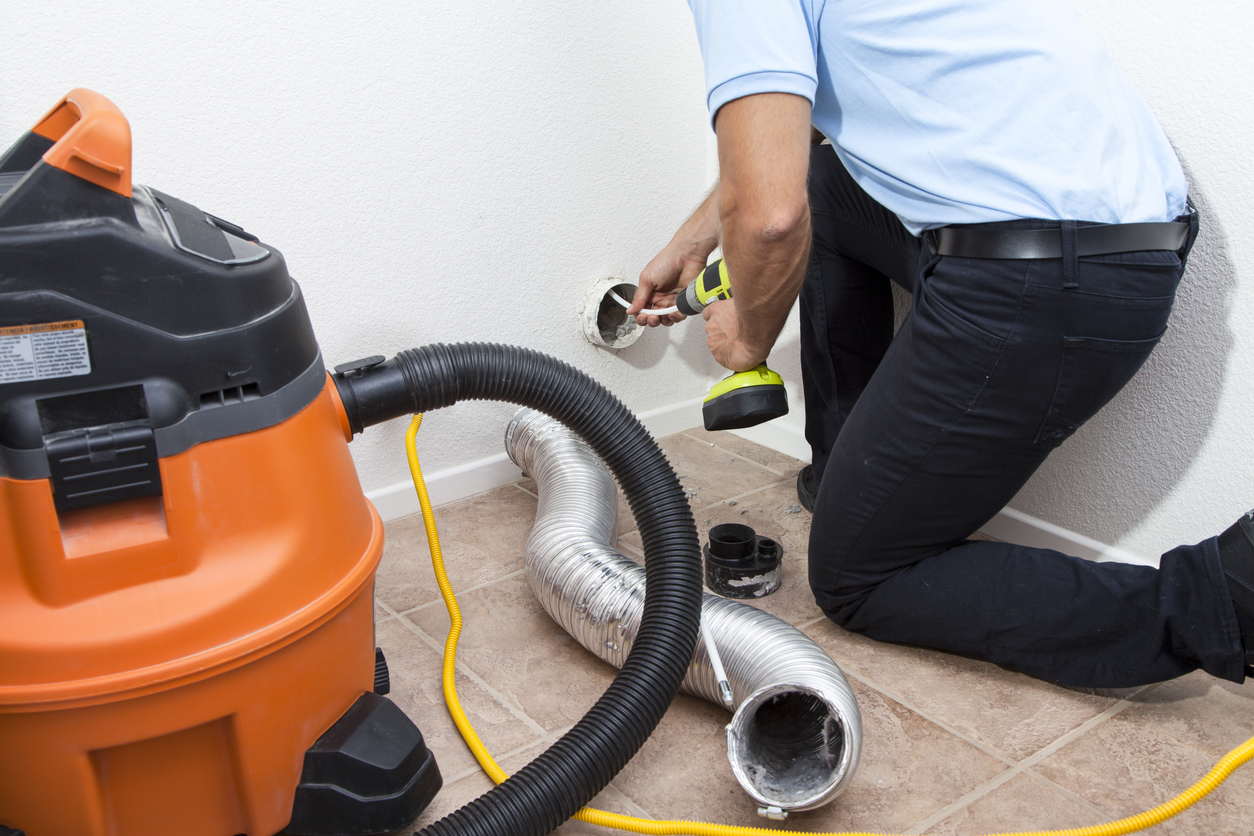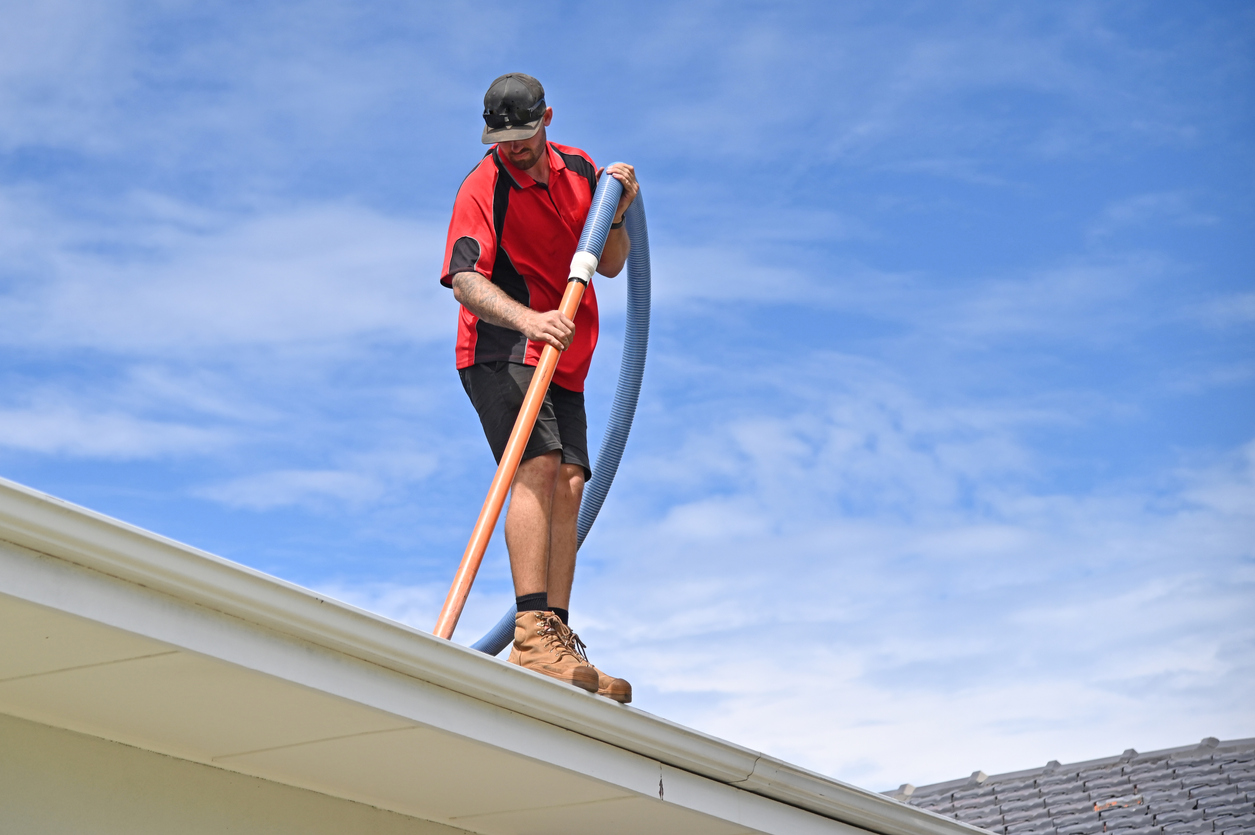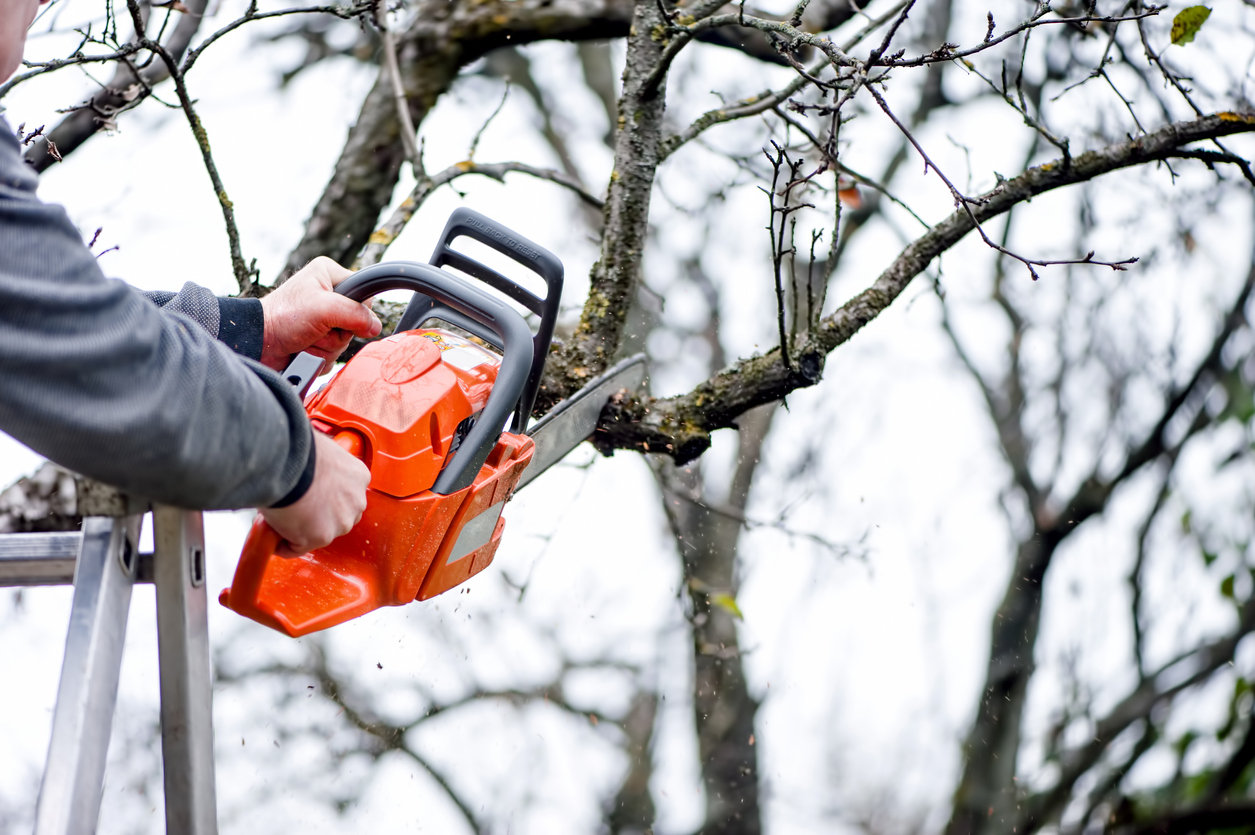

We may earn revenue from the products available on this page and participate in affiliate programs. Learn More ›
Managing a home is about more than making sure the lawn is mowed, the leaves are raked, and the snow is shoveled. In fact, there are many home maintenance tasks that need to be addressed at least once per year to ensure that your home systems continue to function effectively. However, attempting to tackle every maintenance project at once or even over the course of a few days is not just tiring, but it’s likely costing you more than if you evenly spaced out your tasks, taking on some projects during the off-season when you can expect to save some money.
Learn how to keep your home in top shape by making one phone call a month and you will be surprised by how easy it can be to stay on top of important jobs around the house. Keep reading for detailed information demonstrating how to manage your maintenance needs throughout the year.
January: Smoke and Carbon Monoxide Detector Testing
When snow is covering the ground or it’s simply too cold to spend long periods of time outdoors, it’s a good idea to call a professional to inspect and test the smoke and carbon monoxide detectors in the home. Malfunctioning furnaces that are trying to keep up with the demand of freezing January weather are capable of sending poisonous carbon monoxide gas throughout the home. A quick call and a service appointment that may take about 30 minutes or so is all it takes to gain peace of mind.
RELATED: The Best Furnace Brands for Today’s Home
February: Energy Efficiency Home Evaluation

Windows, doors, and even attics can be prone to developing leaks that allow hot air to escape the home in the winter and cold air to escape in the summer. Have a professional energy efficiency assessment advisor come in during the tail end of winter in February to evaluate the efficiency of the home and make recommendations that could help improve home efficiency and reduce heating and cooling bills. This task can also be completed in the fall before heading into winter if you are worried about losing too much heat during the colder months of the year.
March: Annual HVAC Inspection

The HVAC system is responsible for generating heat and pumping the heated air throughout the home. If you have a whole-home air conditioner, then this appliance is also a part of the HVAC system. In March, before the weather has the chance to heat up too much, call an HVAC professional to inspect the furnace and air conditioner. It’s a good idea to have the ventilation ducts cleaned as well if you are looking to clear out the hair, dirt, and other allergens that have accumulated throughout the winter.
RELATED: 7 Important Reasons Never to Skip Your HVAC’s Yearly Checkup
April: Pool Opening

Some homes have in-ground or above ground pools, which are great for exercise or simply relaxing under the sun. These pools need to be opened every year, which is a more involved process than removing its cover and fishing out leaves and debris. Rather, opening a pool involves cleaning the pool, filling it with water, and adding a high level of chlorine in order to shock the pool and kill any viruses, bacteria, fungi, and insects. Pool maintenance companies can take care of this arduous process in no time, so don’t forget to make this call in April, when it comes time to open the pool. Wait until summer and you’ll probably have to wait, and maybe even pay a premium.
If your home doesn’t have a pool, then April may be a good month to call for the septic tank to be emptied. Keep in mind that if a septic system isn’t regularly emptied, the contents of the tank can back up into the home causing a flood.
Homes without pools or septic tanks can use this time to inspect the driveway for any cracks that may have developed over winter. Call a paving company to have any cracks professionally filled in order to prevent further damage to the driveway.
May: Roof Inspection and Repair

A great time of the year to inspect the roof and make any necessary repairs to the shingles, eaves troughs, or downspouts is in May. The temperature isn’t too hot and there isn’t likely to be any more damage caused by winter storms. Contact a roofing company and book a maintenance appointment. Leaving cracked shingles in place isn’t a good choice because leaks can develop, resulting in severe water damage to the roof of the home. This is especially true if the attic is fully enclosed because the problem will develop unseen until the damage is too extensive to ignore.
June: Pest Inspection and Treatment

Termites, ants, spiders, mice, roaches, and many other pests creep into the home, nesting in the walls, floors, ceilings, and any other spaces that are essentially unused and unseen, but the evidence of infestations isn’t difficult to spot. At least once per year, usually in June or July, it’s a good idea to have a pest control expert inspect the home and treat for problem pests. Not only does this keep your home safe from damage, but it also keeps the family safe from disease and parasitic pests, like bed bugs.
July: Landscaping Improvements

If there was ever a time to call a landscaper to help maintain the foliage around the home, put in paving stones, plant bushes, or make any additional landscaping improvements it is in the middle of summer. Depending on where you live, July might be the ideal month for outdoor work. If you are planning on updating any areas of the yard, a professional landscaper will ensure that your property ends up looking the way you expected it to look.
August: Drain the Hot Water Tank

When sediment accumulates in the bottom of a hot water tank, the water in the tank isn’t heated efficiently. Sediment can also increase the amount of noise the hot water tank makes during operation, and may lead to higher heating bills because the hot water tank must heat the water for a longer period to get to the set temperature. Call a licensed plumber in August to drain the hot water tank and ensure that the system is working efficiently.
September: Winterize the Pool and Sprinkler System

Just as homeowners who have pools have to have them opened at the beginning of swimming season, they’ll also need to call a pool service to close the pool. Draining and winterizing a pool in the fall prevents damage to the pump and filtration system. Homeowners with sprinkler systems should make an appointment with their landscape or plumber to have their sprinklers drained and shut down before winter; water that remains in the system could freeze and crack the pipes or sprinkler heads.
If your home doesn’t have a pool or a sprinkler system, September is a great time to have the foundation inspected. Leaks in the foundation can be a big problem in the winter, and can lead to extensive damage and flooding when the snow and ice melt in the spring.
RELATED: The Best Pool Pumps, Vetted
October: Clothes Dryer Vent Cleaning

Washing and drying clothes is a regular task in any home, so it’s important to ensure that the clothes dryer vent is clear in order to prevent the dryer from overheating. Call a dryer maintenance technician to have them inspect the appliance and clean out the clothes dryer vent. This task can be tackled in spring, but it’s likely that the prices will be higher, so taking care of it in October is a good way to save on maintenance fees.
November: Chimney and Gutter Cleaning

Before the snow begins to fall and the vast majority of people retreat indoors to wait out the cold weather, the chimney and gutters need to be cleaned. Contact a chimney cleaning company to inspect and clean the fireplace and chimney. This will help to improve airflow, reduce the risk of fire, and allow you to enjoy fires throughout the winter season.
Your home’s rain gutters should also be cleaned out in November to help prevent ice dams from forming in the eaves. If the gutters are full of a substantial amount of leaves, twigs, mud, and other debris, then the water from rain, snow, and ice cannot flow through the gutters to the downspout. The still water then freezes quickly and completely blocks the gutter. The added weight of the ice can damage the gutters and even pull them off the side of the home, so take the opportunity to have the gutters professionally cleaned before December.
December: Maintain Trees on the Property

When leaves have fallen off the trees it’s typically easier to spot cracked or broken branches that could be torn from the tree during a winter storm. It’s a good idea to contact a landscaping company in early December to cut away any trees or branches that are at risk of falling or being torn off in order to prevent damage to the home, the garage, any vehicles in the driveway, the fence, and the yard. Keep in mind that the longer you wait, the more likely it will be that the branches will break in severe weather.
